Irish author maps out literary Switzerland
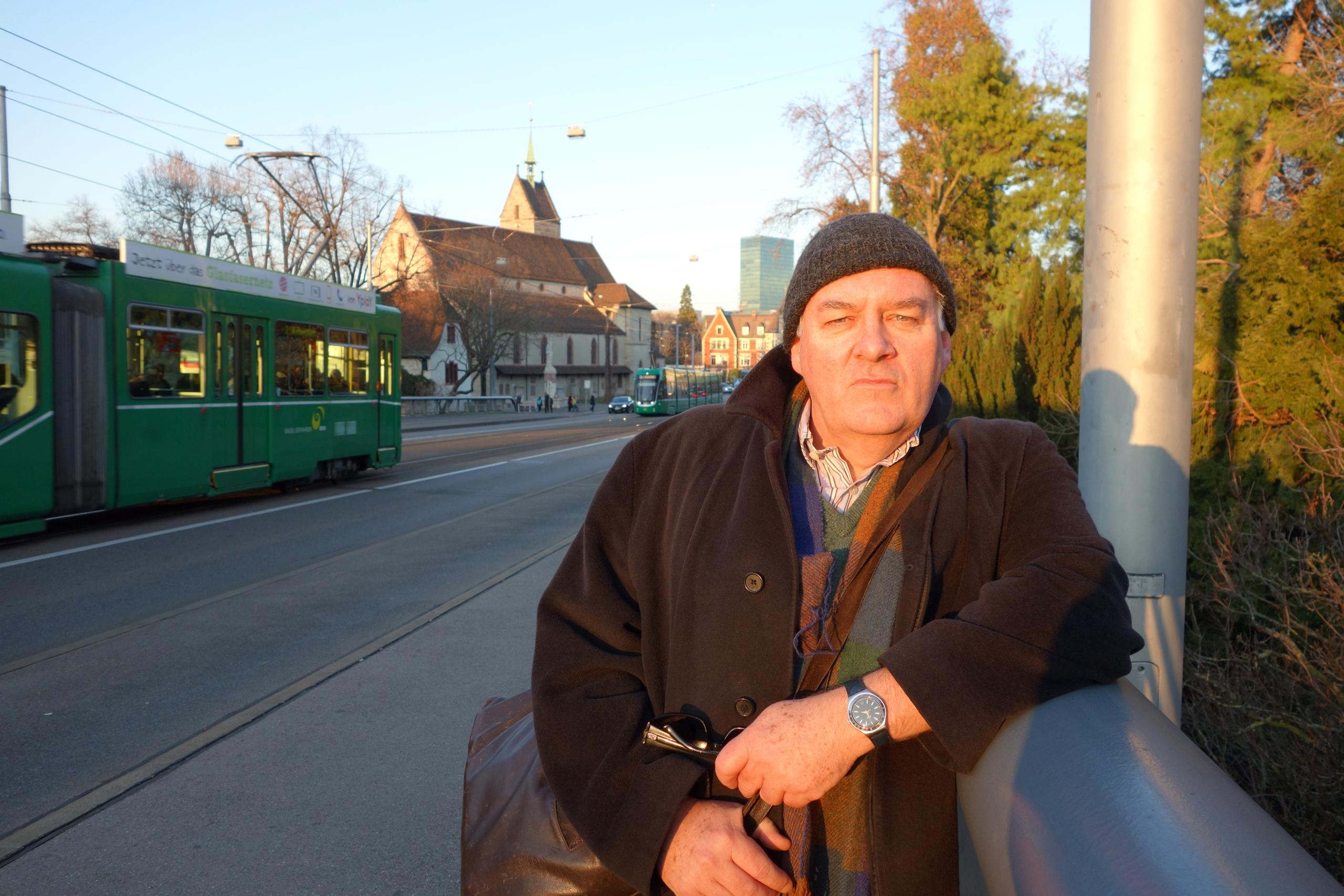
Both local and foreign writers have found shelter, inspiration and adventure in Switzerland. In his new book, Basel-based author Padraig Rooney distils two centuries of literature with Swiss connections.
The school day had been long and parking near Basel’s Paper MillExternal link and literary museum a challenge. Author and teacher Padraig Rooney needs a cup of coffee, maybe even something sweet. He follows the waitress to the dessert case with such gusto that I can’t help but tag along.
Tucking into a slab of chocolate cake at the museum café, he recalls how he came up with the idea for his book – The Gilded Chalet: Off-piste in Literary SwitzerlandExternal link – during a visit to the museum in 2008. He had gone to see an exhibition marking the 400th anniversary of the Earls of Ulster passing through Basel on their way to Rome.
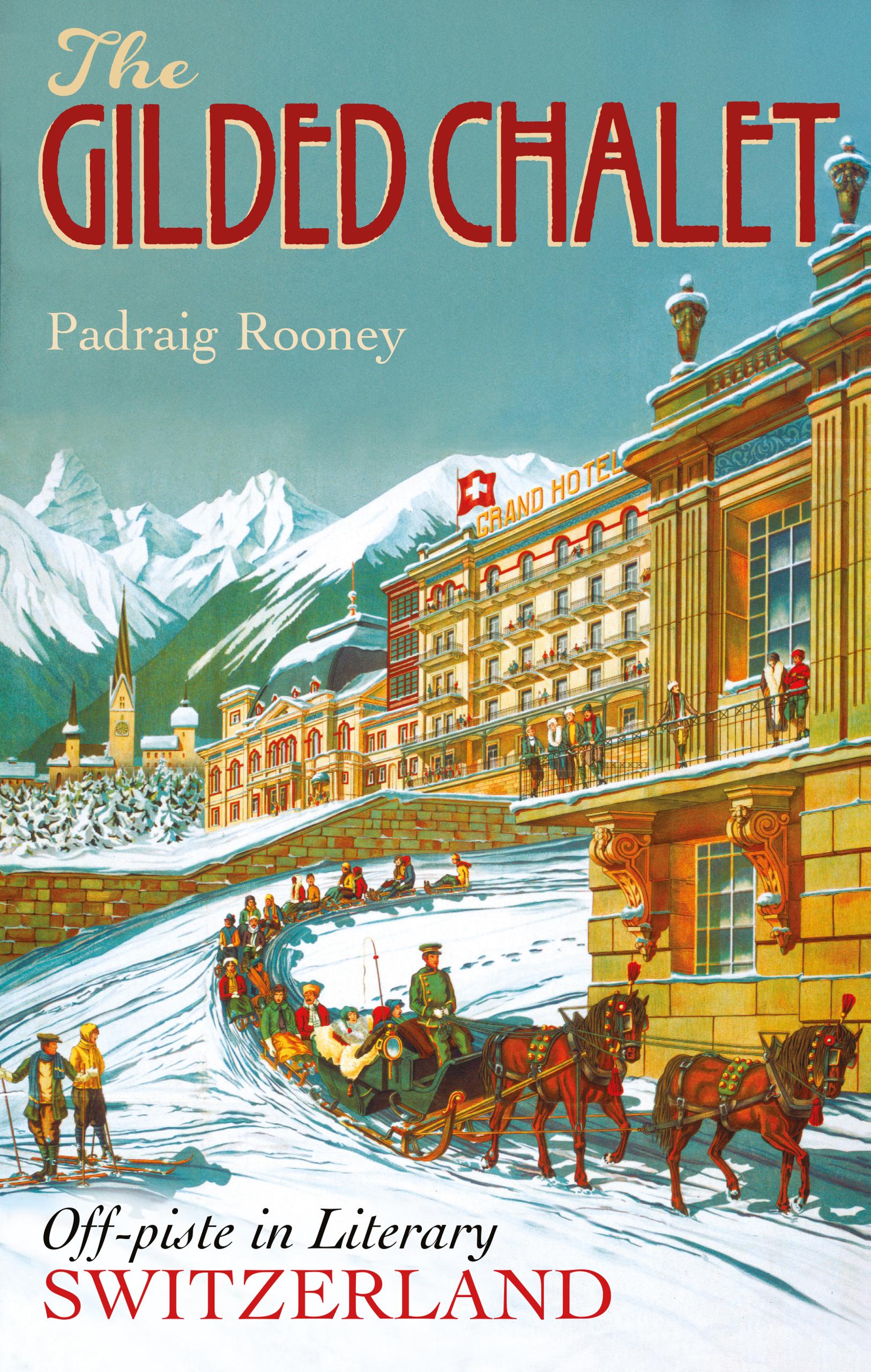
“I thought I could make use of that as a starting point for my book,” says Rooney, himself an Ulsterman from county Monaghan in Ireland. And besides, he was dissatisfied with the English-language reading material about Switzerland at the time.
“Not much there beyond books about cheese and quaint customs and the mountains. Nothing really meaty. So I wanted to write the kind of book that I’d like to read myself.” The 272-page book covers a mix of renowned and lesser-known writers, Swiss as well as foreign scribes active on Swiss soil.
“You have the likes of Jean-Jacques Rousseau and [Lord] Byron cavorting through one chapter, and a cross-dressing, kif-smoking anarchist like Isabelle Eberhardt in another,” chuckles Rooney, adding that he wanted to put the spotlight not just on their writing, but also on their lives and the “kinds of oddball things they got up to”.
Down by the river
Rooney has agreed to take me on a walking tour of the literary highlights of Basel – his adopted city. Strategically located near the German and French borders, the city on the River Rhine has welcomed numerous writers – some of whom were just passing through, and others who stayed for longer periods.
Refreshed from our cake break, we head for the river. It’s new territory for me, but for Rooney it’s a trip back in time as he recalls arriving in Basel as a 16-year-old hitchhiker in 1973.
“I had just finished school, and I got a lift from some people who helped me get me a summer job in a market garden,” he says. He spent that summer sampling the continental European lifestyle before returning to his studies. Then, after years of travelling, teaching and writing poetry, Rooney found himself back in Basel in 2002 – this time as head of the English department at the international school.
We cross the Wettstein bridge to reach quaint Kleinbasel, and walk to Hotel Krafft, where German writer Herman Hesse penned some of Steppenwolf. Clad in a medley of woollens in cool tones that complement his blue eyes, Rooney poses for a few photos with the metallic wolf’s head beside the door.
He’s visibly chuffed to revisit his old stomping grounds – along with those of the writers who came to the city long before him. We settle onto the hotel patio overlooking the Rhine, and Rooney tells me more about Hesse, who lived in Basel as a little boy and again as a young man.
“Hesse’s marriage to a Basel lady was breaking up at the time when he was working on Steppenwolf. He went drinking across the river at the bars in Schifflände and the Fischmarkt,” Rooney says, pointing the way. Although the novel is set in an unnamed river town, Rooney thinks it has quite a few features of Basel.
“I associate this hotel with Hesse but I also associate night-time Basel and the foggy river and River Rhine with his writing,” joking that Hesse left the “temptations of the north” for Italian-speaking Ticino in southern Switzerland. He lived in Montagnola for 43 years before dying there in 1962, aged 85.
Although Rooney enjoyed re-reading Steppenwolf while researching The Gilded Chalet, he’s outgrown Hesse. “He’s very much the kind of writer that teenagers like. I’m not quite sure he survives the change into adulthood.”
We move on, passing a few schoolboys – and potential Hesse fans – huddled on the steps to the Mittlere bridge.
“Hi guys, how are you?” Rooney asks. Wide-eyed, they politely repeat the phrase to us. Past their hearing, Rooney quips, “They think I’m a rock star with you following me with that microphone.”
Padraig Rooney
Born in Ireland, Padraig Rooney studied at Maynooth College and at the Sorbonne. His books include In The Bonsai Garden, which won the Patrick Kavanagh Award for Poetry in 1986; The Escape Artist, which won the Poetry Business Competition in 2005; and The Fever Wards, published by Salt in 2010. He won the Strokestown International Poetry Prize in 2009 and has been the recipient of two Irish Arts Council bursaries. He has taught abroad for many years and lives in Basel, Switzerland, where he teaches English at the International School Basel.
Fit for literary kings
We cross the river again, passing Schifflände before stopping at the Grand Hotel Les Trois Rois – which has hosted a host of writers.
“All the major writers of the 19th and 20th centuries spent time in the ‘Three Kings’ – it was the stopping-off point once you’d crossed the Rhine and before you tackled the Alpine crossings,” Rooney explains.
So much for the starving artist, I say, sizing up the smart doorman and the chandeliers – both of which are beaming at us.
“I don’t think Switzerland has necessarily been the home of the starving artist. Perhaps James Joyce would be the exception when he came here at the beginning of his career,” Rooney says. As for the Trois Rois crowd, Rooney speaks highly of American author Patricia Highsmith, known for Strangers on a Train, The Talented Mr Ripley, and The Price of Salt, which has recently been adapted for the film CarolExternal link. She kept a detailed account of her Christmas 1952 stay at Trois Rois.
“Highsmith was quite an observant writer; her diaries are fascinating,” remarks Rooney, noting that she left her papers to the Swiss Literary ArchivesExternal link in Bern after dying in Locarno in 1995 – having lived in Switzerland since 1982.
The Trois Rois was nearly the deathbed of American Stephen Crane, author of The Red Badge of Courage.
“He was suffering from tuberculosis when he came here, and given a room on the top floor. But he was so ill I think he was asked to leave,” continues Rooney, noting that Crane died some weeks later in a German spa town in 1900. Thomas Mann, German author of The Magic Mountain, was also a guest of the posh Basel hotel. As with Hesse, Rooney’s feelings about Mann have changed over the years.
“I read him in my late teens and early 20s, but some of his books just don’t work for me [anymore] – I think they’re full of a certain amount of hot air. I tend to agree with Nabokov, who thought that Mann was a kind of plaster of Paris statue, that there wasn’t much to him.”
Grand Tour
Of course Basel isn’t the only city covered in The Gilded Chalet, in which Rooney takes readers all over the Swiss map. For poet Percy Bysshe Shelley, the trip to Geneva was a “literary pilgrimage to the places mentioned in Rousseau’s Julie, a bestseller”.
In an interview with Swiss public television SRF, Rooney talks more about that.
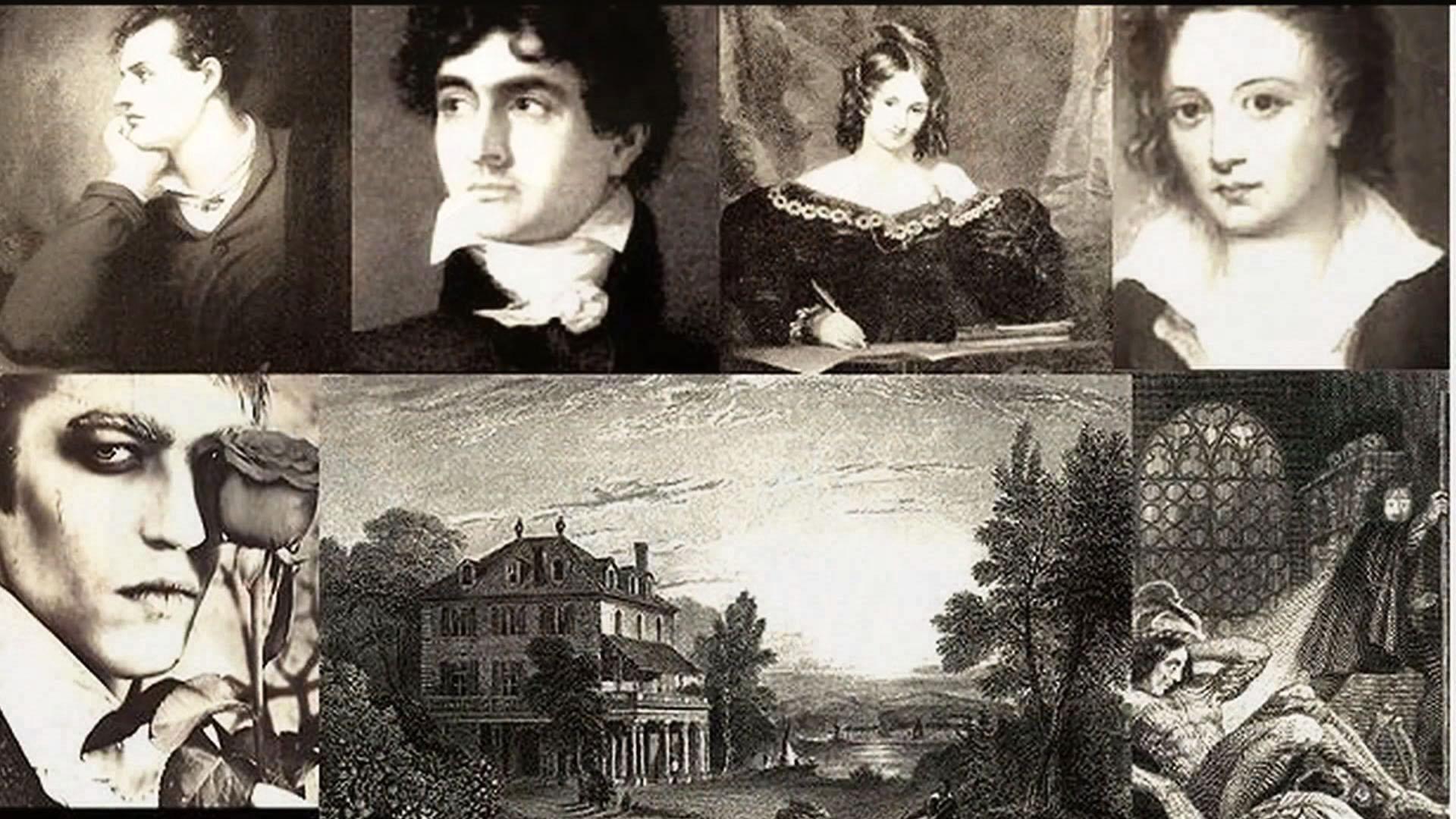
More
Switzerland works its magic on famous writers
Other chapters of The Guilded Chalet cover themes like writing in Switzerland during wartime, the concepts of finishing schools and clinics, and the role of the Swiss landscape – as visiting the mountains was an “environmental pilgrimage” of sorts during Britain’s industrial revolution.
Basel still appeals to Rooney as much as it did when he was a teenager – if not more so. He’s spent more of his adult life in Basel than in any other city.
He appreciates its “smallness and bijou quality”, and the fact that it lacks the “international gloss” of Zurich and the “global reach” of Geneva. Plus it’s a linguist’s paradise.
“I just like being in a place where you don’t quite know what language you’re going to hear when you go down the street,” adding that he likes how the Germanic, Gallic, Swiss and English-speaking cultures “all rub up against each other. It’s an interesting mix”.

In compliance with the JTI standards
More: SWI swissinfo.ch certified by the Journalism Trust Initiative








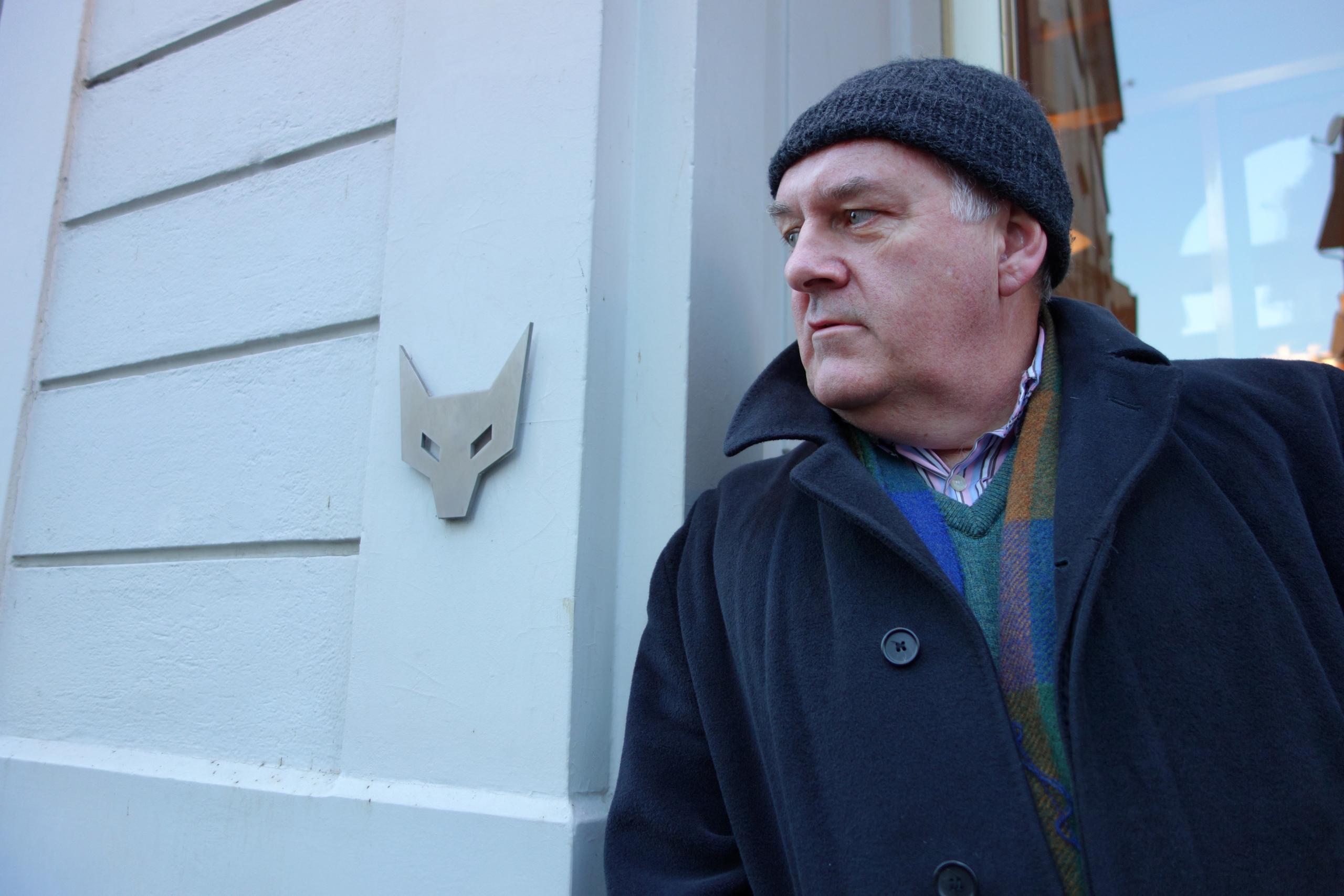
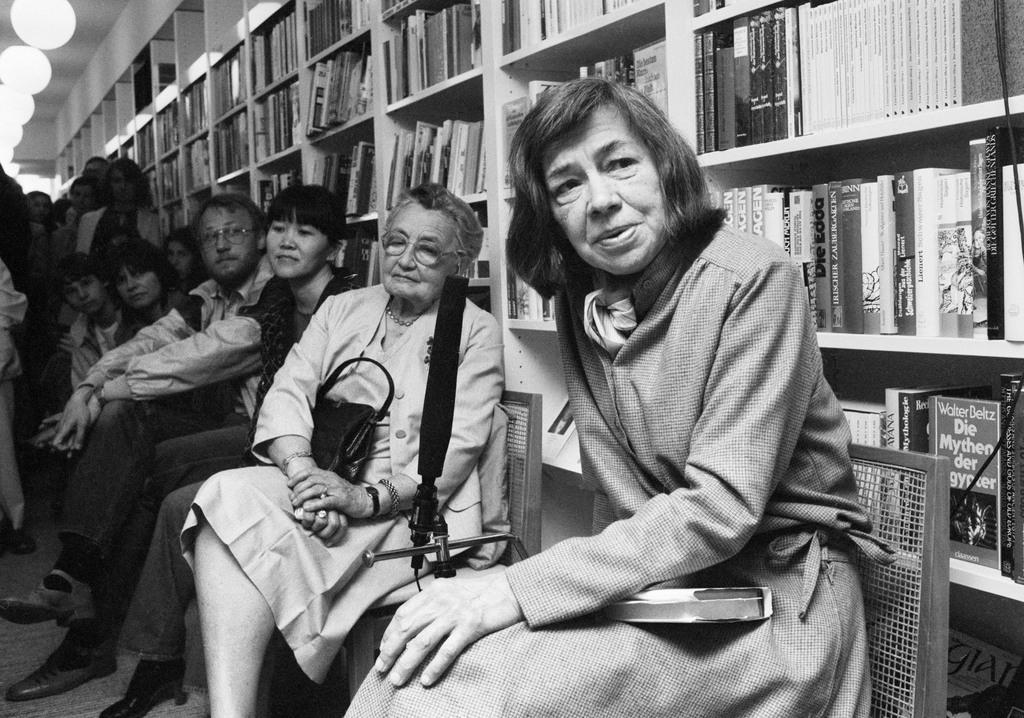

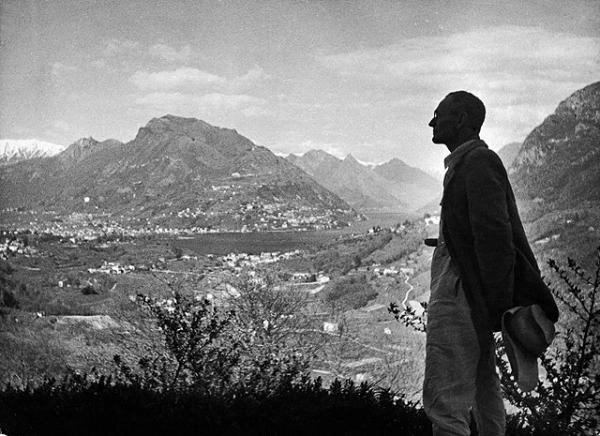

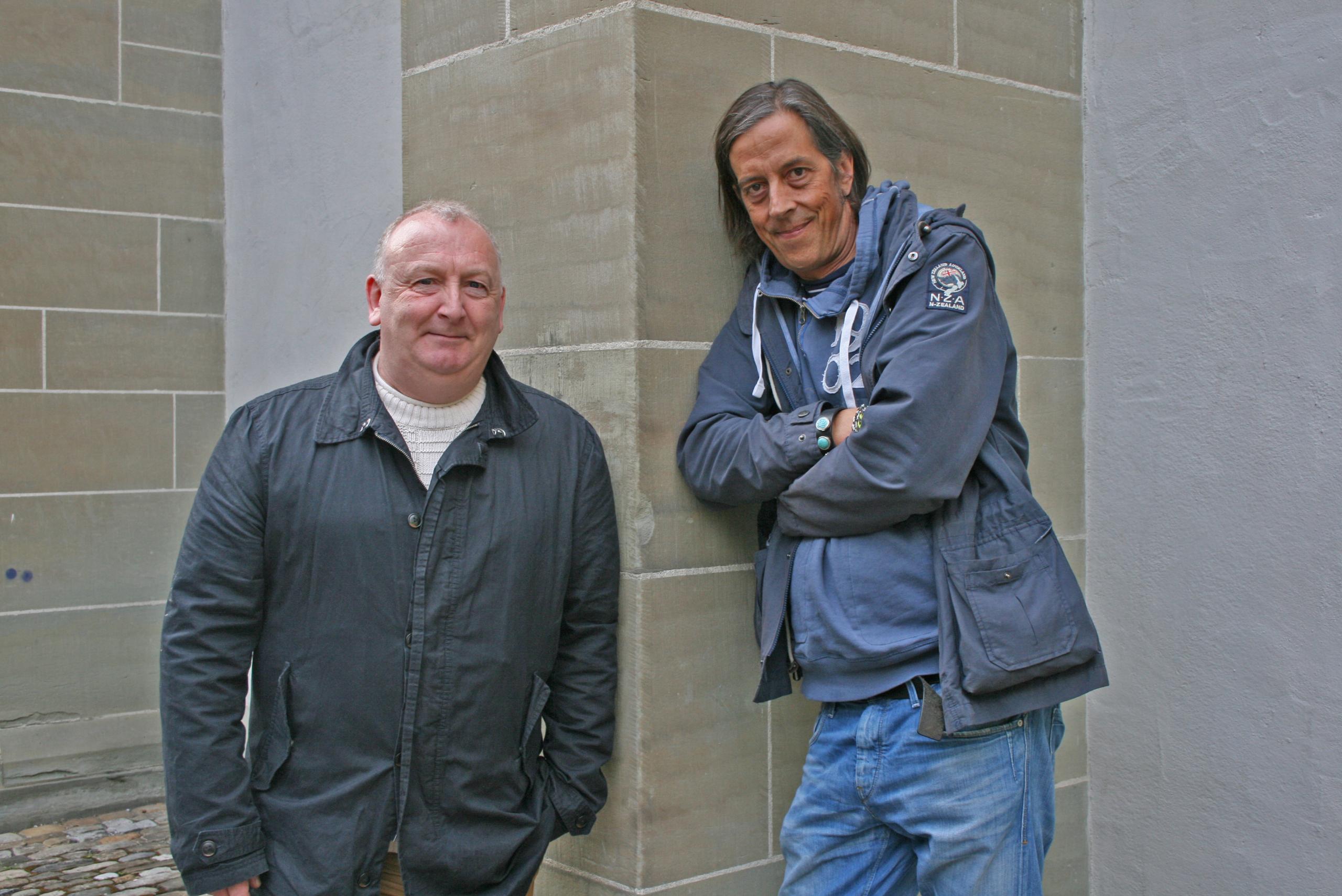
Join the conversation!